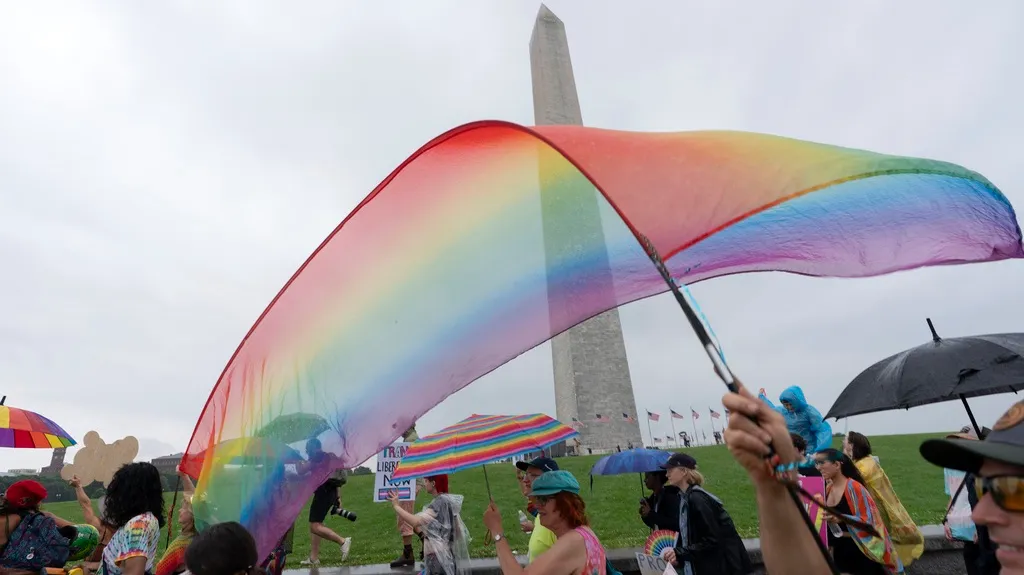October 28, 2020
Equality Advocates: Supreme Court Could Begin Dismantling LGBTQ Rights, Protections Next Week
Kilian Melloy READ TIME: 3 MIN.
Equality advocates fear that with the confirmation of Amy Coney Barrett, a religious conservative, to the U.S. Supreme Court, a rapid dismantling of the rights and protections of LGBTQ Americans could get underway as soon as next week, when the court takes up a case that could potentially touch upon a number of areas affecting sexual minorities, NBC News reports.
The court will hear Fulton v. City of Philadelphia, a suit by a religiously-based child welfare organization against the city of Philadelphia because of city requirements that stipulate such agencies cannot discriminate against "same-sex couples and other people whom they consider to be in violation of their religious beliefs," NBC News noted.
NBC News explained that Philadelphia "terminated its contract with Christian Social Services for foster care services after it refused to work with same-sex prospective parents." Courts sided with the city in the ensuing legal battle. But that could change when the case reaches the Supreme Court.
The Human Rights Campaign weighed in on that very case in a report that warns that if the court sides with the religious group, "it could erode the efficacy of nondiscrimination protections that LGBTQ people enjoy across a wide spectrum of issue areas, including veterans' services, public accommodations, economic security programs, and housing."
"Such a result would set a devastating precedent and create a significant roadblock on the path to full equality," the report added.
Equality advocates have pointed out that Barrett's writings indicate that as a Supreme Court justice she might be likely to prioritize broadening the rights of religious people and faith-based groups to the point of eclipsing the rights of LGBTQ people and other minorities.
NBC News cited Lambda Legal attorney Currey Cook, who said that Barrett's "prior statements" indicate that the newly-appointed justice would "be inclined to grant certain groups special permission because of their faith."
The head of Americans United for Separation of Church and State put it in a slightly different way. Barrett, Rachel Laser said, "has shown that she would allow claims of religious freedom to be misused to harm women, LGBTQ people, religious minorities and the nonreligious, among many others,"
Skeptics also have pointed to Barrett's paid speaking engagements for anti-LGBTQ group Alliance Defending Freedom, which has worked bolster the legal rights of people of faith while seeking to erode protections and equality before the law for LGBTQs. NBC News recalled that ADF has "submitted legal briefs against same-sex marriage in Obergefell v. Hodges," the 2015 case that saw the court usher in marriage equality in all 50 states, "and successfully argued a Supreme Court case on behalf of Masterpiece Cakeshop owner Jack Phillips, the Colorado baker who refused to bake a cake for a same-sex wedding because he said it would violate his religious beliefs."
Barrett, NBC News recalled, has characterized her relationship with ADF as "wonderful".
Among other legal challenges to the rights and protections that LGBTQ Americans currently enjoy, two of the court's own rulings could be amended or revisited, NBC News said. One is Obergefell, which - while not likely to be reversed wholesale, at least not soon - could be attacked piecemeal, with the case pitting Christian Social Services against Philadelphia possibly providing an opening for the court to start "chipping away" at equality for same-sex families.
"'This case already gives the court the chance, within the current term, to say, 'No, Obergefell does not require equal treatment for same-sex and different-sex couples,'" warned Arthur Leonard, a professor at the New York Law School.
The same case could also have ramifications for a ruling the Supreme Court handed down last summer that unexpectedly found that Title IX, part of existing civil rights law, extends protections to transgender workers.
Leonard posited that, "depending on how broadly they rule, it is possible to tear a big exception in Title VII" if the Supreme Court sides with the religious organization against the city of Philadelphia. That, he said, could have a significant impact on non-heterosexual Americans, as well as non-cisgender citizens and racial and religious minorities.
The addition of Barrett to the Supreme Court bench following the death of Ruth Bader Ginsberg tips the court solidly toward a conservative ideology, with the bench now comprising six conservative justices and three more liberal ones. That slant is expected to remain in place for decades to come.
Kilian Melloy serves as EDGE Media Network's Associate Arts Editor and Staff Contributor. His professional memberships include the National Lesbian & Gay Journalists Association, the Boston Online Film Critics Association, The Gay and Lesbian Entertainment Critics Association, and the Boston Theater Critics Association's Elliot Norton Awards Committee.







